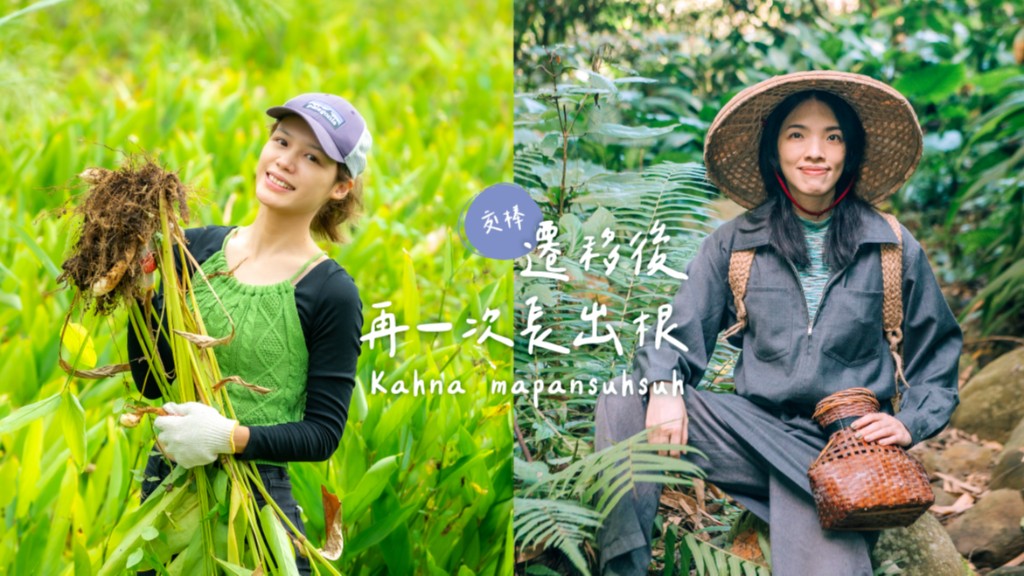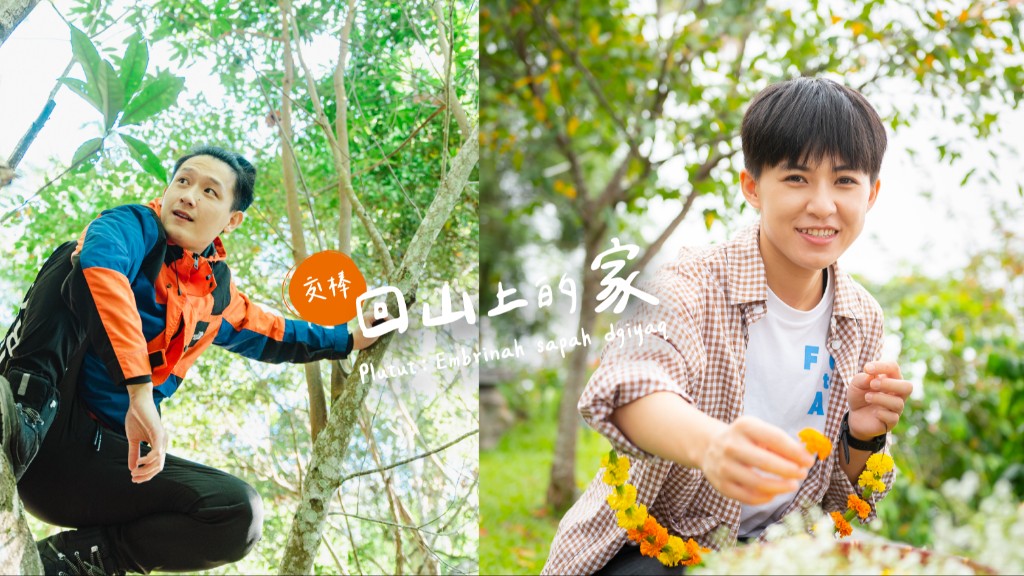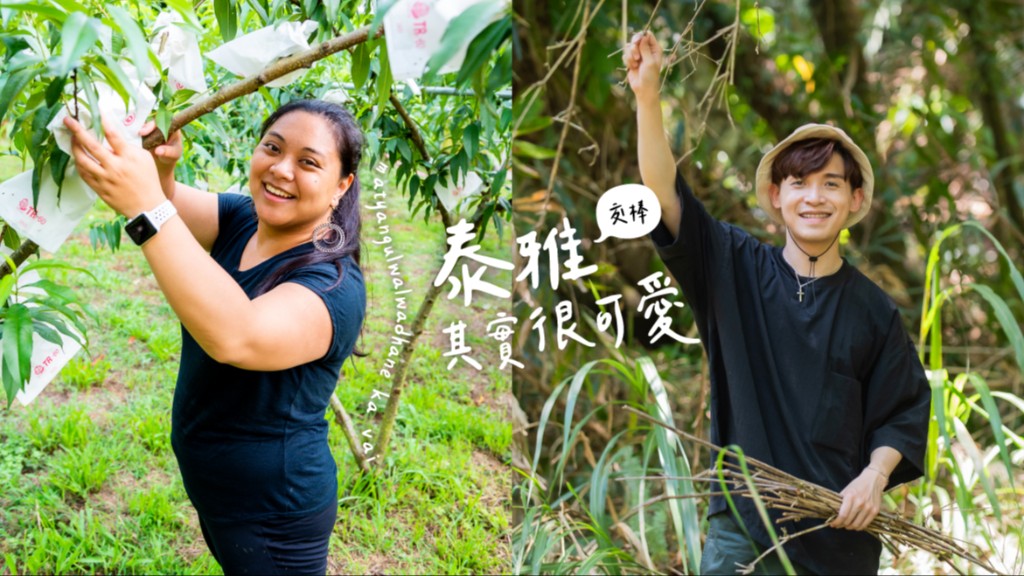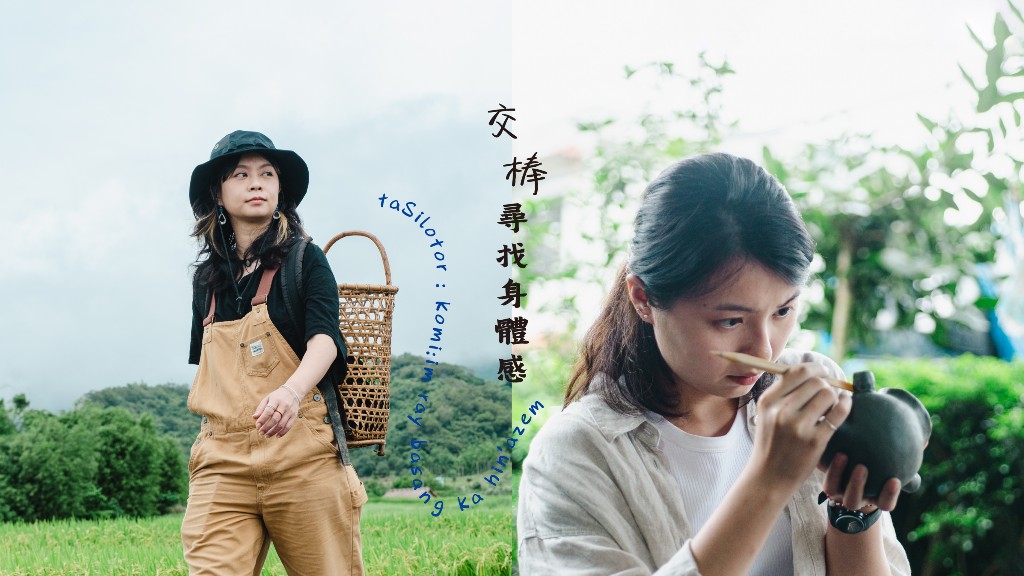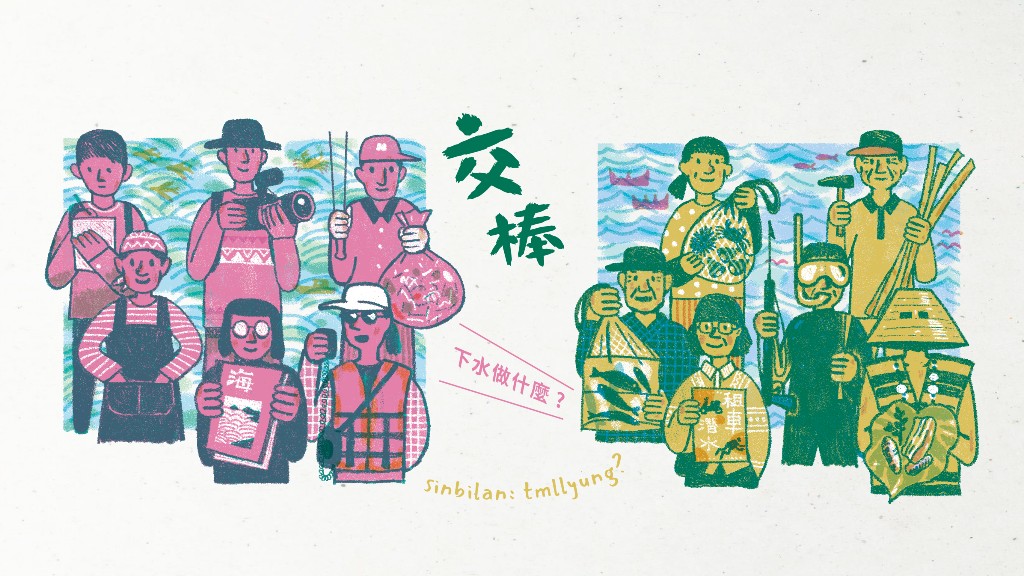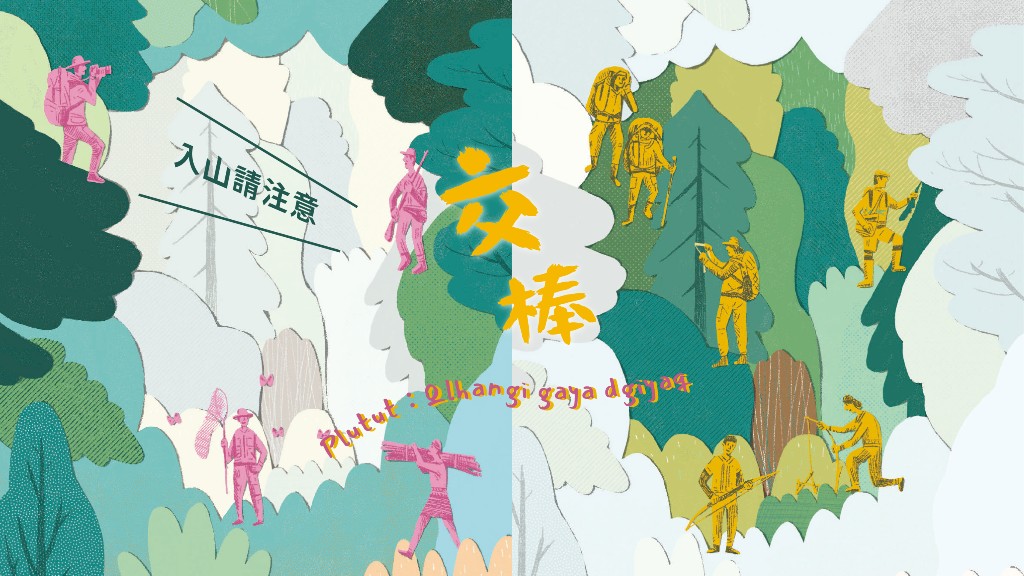How much do you know about indigenous hunters before this trip?
 Nearly nothing. I don’t have the slightest idea whether there are still people working as hunters. On my previous visit to the Atayal Bulaubulau Community, we went hiking along a mountain trail under the guidance of a local resident. We passed somewhere a trap had been set and were reminded to stay away from it. That made me realize that it was workable to hunt with traps. But I was still not sure if it was okay to use shotguns or to what extent hunters could do when chasing their prey. I didn’t have any knowledge about things like these at all. “Being a hunter” sounded foreign to me.
Nearly nothing. I don’t have the slightest idea whether there are still people working as hunters. On my previous visit to the Atayal Bulaubulau Community, we went hiking along a mountain trail under the guidance of a local resident. We passed somewhere a trap had been set and were reminded to stay away from it. That made me realize that it was workable to hunt with traps. But I was still not sure if it was okay to use shotguns or to what extent hunters could do when chasing their prey. I didn’t have any knowledge about things like these at all. “Being a hunter” sounded foreign to me.
What do you think of hunters after getting to know this profession?
 Before today, when talking about “hunters,” I’d picture an image of a man in sunglasses hunting in the mountains with a shotgun, which looked very cool. But few people would be curious to know why they hunt, what they hunt for, how they handle the prey, what their purposes are, and what they will do after hunting. It seems that these hidden questions are seldom asked, but through today’s hands-on experience, I have found the answers.
Before today, when talking about “hunters,” I’d picture an image of a man in sunglasses hunting in the mountains with a shotgun, which looked very cool. But few people would be curious to know why they hunt, what they hunt for, how they handle the prey, what their purposes are, and what they will do after hunting. It seems that these hidden questions are seldom asked, but through today’s hands-on experience, I have found the answers.
In the process of hunting, I was most impressed by two things learned from the instructor. For one thing, he thinks that hunters also play a role in ecological conservation, for otherwise, the overpopulation of such species as wild goats and boars would cause damage to the forest environment. However, it’s generally believed that the involvement of hunters should be ruled out from ecological protection to avoid the factor of human influences. Contrary to this argument, the instructor’s idea echoes my study of the Taoist philosophy “to govern by doing nothing that goes against nature,” which doesn’t mean that we should prevent from interfering with nature or do nothing at all. Rather, it stresses the importance of following the rule of nature in whatever we do. Therefore, “human beings” also play an indispensable part in the natural world. The notion I learn from the instructor not only corresponds aptly to the thinking of the Taoist masters, but also brings me a new understanding of indigenous culture, and I agree with it very much.
Another lesson I learned from hunting is the importance of preparing for a rainy day. While collecting firewood at the hunting hut, the instructor kept emphasizing that these branches had been cut off way six months ago and saved for future use. Without his arrangement in advance, we wouldn’t have been able to find firewood readily at hand. No matter where you choose to live, therefore, it’s important to plan ahead to ensure your survival. We all imagine living in nature is like returning to a primitive way of life of keeping records by tying knots in ropes without having to worry about the future. But the reality is not like that at all.
He also mentioned that now illegal loggers are rampant in the mountains. And yet, since local hunters are familiar with the neighborhood, once they spot strangers in the mountains, they know what these guys are here for and will drive them away. Hunters not only hunt animals but also protects the environment. This is quite a different concept to me. Also, I used to think that setting traps is easy, but no, it’s awfully hard. You need to prepare lots of tools in advance. Hunting is not as convenient as one might think. It’s practiced only in winter, for meat rots quickly in summer. What’s more, the prey is not cooked and consumed right on the spot after hunting as we imagine. The fact is that hunters have to bring it back to share with their fellow villagers. Originally, I did not have the slightest idea of what hunting is like in indigenous communities. It was not until today that I finally got a general picture of it.
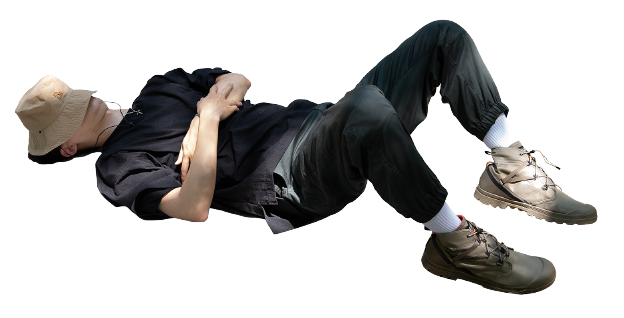
You fell into a deep sleep outside the hut. Do you always live in a world of your own like that?
 Of course not. I’m not a person like that. It’s simply because I got so tired that I fell asleep upon lying down. Though I usually sleep in the morning, I remained wide awake and energetic throughout the hiking. Only after sitting down did I feel sleepy immediately.
Of course not. I’m not a person like that. It’s simply because I got so tired that I fell asleep upon lying down. Though I usually sleep in the morning, I remained wide awake and energetic throughout the hiking. Only after sitting down did I feel sleepy immediately.
What did wild vegetables and pickled pork taste like?
 My uncle has a piece of farmland in the mountains. Sometimes when we visit him, he would show us how to pick yam leaves. But the wild plants we had today were completely new to me. There were ingredients I’ve never tried or heard of such as dongec (yellow rotang palm) and Alianthus prickly Ash. I loved the wild vegetables soup that had a smooth taste but was shocked by the taste of tmmyan (the Atayal pickled pork). Unlike many fermented foods, such as Kimchi, which are heavily seasoned to cater to the taste of the public, tmmyan is characterized by a primitive flavor of sourness and rottenness. Though I got used to it afterward, I’d lost the courage to take a second bite. In fact, when it comes to indigenous cuisine, what I have seen and could think of has always been grilled wild boar. This is my first time knowing there is such a thing as tmmyan.
My uncle has a piece of farmland in the mountains. Sometimes when we visit him, he would show us how to pick yam leaves. But the wild plants we had today were completely new to me. There were ingredients I’ve never tried or heard of such as dongec (yellow rotang palm) and Alianthus prickly Ash. I loved the wild vegetables soup that had a smooth taste but was shocked by the taste of tmmyan (the Atayal pickled pork). Unlike many fermented foods, such as Kimchi, which are heavily seasoned to cater to the taste of the public, tmmyan is characterized by a primitive flavor of sourness and rottenness. Though I got used to it afterward, I’d lost the courage to take a second bite. In fact, when it comes to indigenous cuisine, what I have seen and could think of has always been grilled wild boar. This is my first time knowing there is such a thing as tmmyan.
What was the hardest part of today’s tasks?
 I think it’s practicing how to use the machete. As I watched the instructor’s demonstration, I thought it was easy. But when I got to practice myself, I found the task extremely strenuous. Luckily, I was able to handle it because I have been working out for the past two years. Otherwise, I wouldn’t have been able to achieve anything. People nowadays are too weak in strength. If you want to live in a natural environment, you must be physically strong to handle so many laborious tasks.
I think it’s practicing how to use the machete. As I watched the instructor’s demonstration, I thought it was easy. But when I got to practice myself, I found the task extremely strenuous. Luckily, I was able to handle it because I have been working out for the past two years. Otherwise, I wouldn’t have been able to achieve anything. People nowadays are too weak in strength. If you want to live in a natural environment, you must be physically strong to handle so many laborious tasks.
Did you feel misanthropic today?

Not at all. I was so tired and hungry that even an ordinary dinner was extremely delicious to me.
Chinese Taoism has much criticism of and reflection on human civilization and society. As Laozi said, “Heaven diminishes where there is superabundance, and supplements where there is deficiency.” This suggests that the way of Heaven operates by the principle that what is too much should be reduced, and what is too little should be increased. In Laozi’s observation, there exists a balance point in the universe, and therefore humans should try to avoid going to extremes in their daily lives. When applied to modern society, this notion can be interpreted as the avoidance of excessive economic development. It is not that we have to refrain from developing the economy but must do it within reasonable limits and keep in harmony with the operation of nature. Over the past three days, I have been pondering whether my daily life in the city is an appropriate way of living. Is such a way of life the only possible choice that all human beings will end up with?

